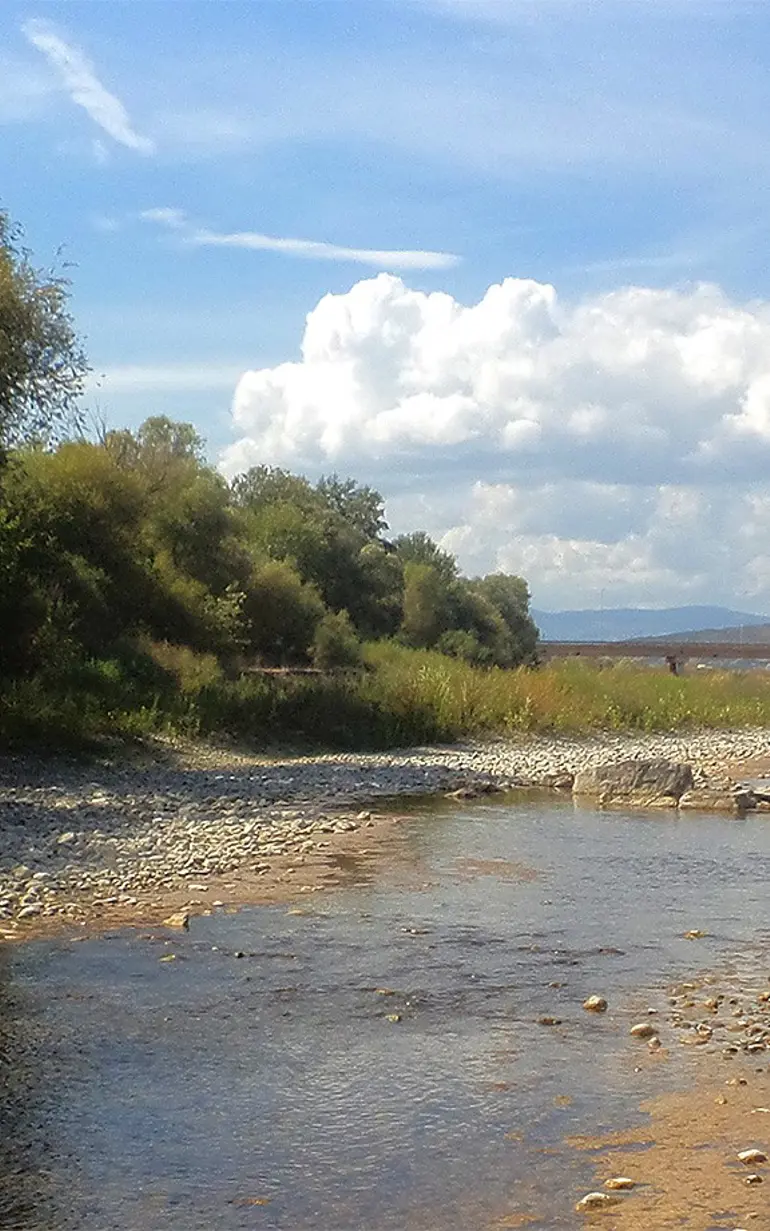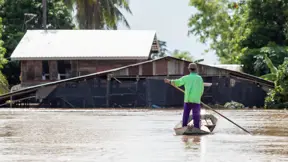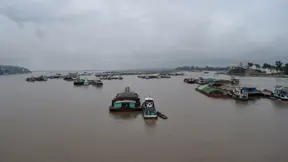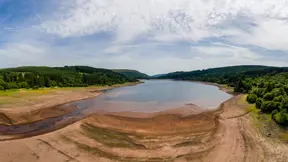
Supporting river basin and coastal management in Central Greece
Integrated decision-support-system boosts Greece's water management and restoration efforts
The Spercheios River is prone to frequent flooding and is significantly impacted by agrochemical runoff and wastewater from surrounding areas. To support the Hellenic Centre for Marine Research (HCMR) in addressing these challenges, DHI implemented advanced flood and hydrological models alongside a comprehensive early warning and forecasting decision support system (DSS). This integrated approach enhances water management and restoration efforts for both the river basin and its adjacent coastal zone.
Challenge
An ecologically-sensitive area
Spercheios River and its deltaic system is located in Central Greece, close to the historic site of Thermopylae. Many ecologically-important areas protected under the NATURA 2000 network are located within the 1828 km2 Spercheios river basin. Anthropogenic interventions in the deltaic area, especially after the 1950s, has influenced its natural habitats. The main interventions include:
- Intensification of agricultural cultivations that have been expanding on the natural riparian vegetation at the expense of biodiversity
- Over-pumping of groundwater and river water abstractions for irrigation
- Use of fertilisers and pesticides, along with uncontrolled disposal of urban wastes and household refuses from villages
- Wastewater and solid industrial wastes that aggravate the natural habitats and affect the fauna and water quality of surface and underground waters
- Construction of roads, irrigation and drainage networks that have significantly altered the natural drainage regime, as well as heavy rainfall and floods that take place about once every three years
To effectively manage and restore the Spercheios River basin and its coastal zone, HCMR required a comprehensive overview of both areas. The primary challenge was the absence of timely, accurate data that was centrally stored and readily accessible. Additionally, there was a critical need to integrate this data with models and DSS.
Local authorities had to be better prepared for the threats of frequent flooding and poor water quality, to ultimately reduce financial losses and health risks for the local community.
Solution
DHI developed and helped HCMR implement a monitoring, forecasting and water quality management system. This meant that HCMR could now obtain, manage and use data more efficiently than ever before. Solution highlights:
- A sophisticated and integrated DSS that is capable of managing different sources of information automatically
- Coupled flood and hydrological models
- An online system that can produce accurate model forecasts, water balance reports and early warnings of river flooding and basin hydrology
Results
- Improved operational efficiency
The timely and accurate data now supports informed decision-making in the river basin and coastal Gulf area. With this powerful framework in hand, HCMR and Central Greece can efficiently study regional changes, leading to improved management and restoration practices. - Better preparedness
Our solution's forecasting and monitoring capabilities empower authorities to effectively plan mitigation measures and address emerging issues. - Reduced costs
Readily-available information results in optimised and more efficient agricultural practices which translate to cost-savings for the local farmers. - A better understanding of climate change and land-use impacts
As part of this research, we analysed the impacts of climate and land use changes. Scenarios were evaluated to determine how shifts in land use, irrigation practices and climate would affect water quality and quantity in both the river basin and the Maliakos Gulf coastal zone. - Publicly accessible data platform
Sampling and monitoring data, along with flood and hydrological forecasts, are publicly accessible here and for use by authorities. A walk-through guide (in Greek) for navigating the project website is available here.
Client:
Hellenic Centre for Marine Research (HCMR)
Location:
Greece
Related SDG(s):
SDG 6: Ensure availability and sustainable management of water and sanitation for all
SDG 11: Make cities and human settlements inclusive, safe, resilient and sustainable
SDG 13: Take urgent action to combat climate change and its impacts
Technology:
'The DSS solution is expected to improve the operational efficiency of researchers, competent authorities and decision makers in Central Greece by providing timely and accurate information to support water management and restoration measures. In the mid- to long-term we anticipate that the system will facilitate the reduction of hydromorphologic and pollution pressures in the Spercheios river basin and Maliakos Gulf.'
Elias Dimitriou, Main Researcher
Hellenic Centre for Marine Research – Institute of Marine Biological Resources and Inland Waters
About our client
The Institute of Marine Biological Resources and Inland Waters (IMBRIW) is one of the three institutes of the Hellenic Centre for Marine Research (HCMR) – a governmental research organisation operating under the supervision of the General Secretariat for Research and Technology. The project was funded by the General Secretariat for Research and Technology under the program ‘KRIPIS’ – NSRF 2007-2013.
You may also like
How can we help?
With our global network of offices, we make sure you get the right answers to your local needs. Tell us about your water challenges and we will get back to you.



